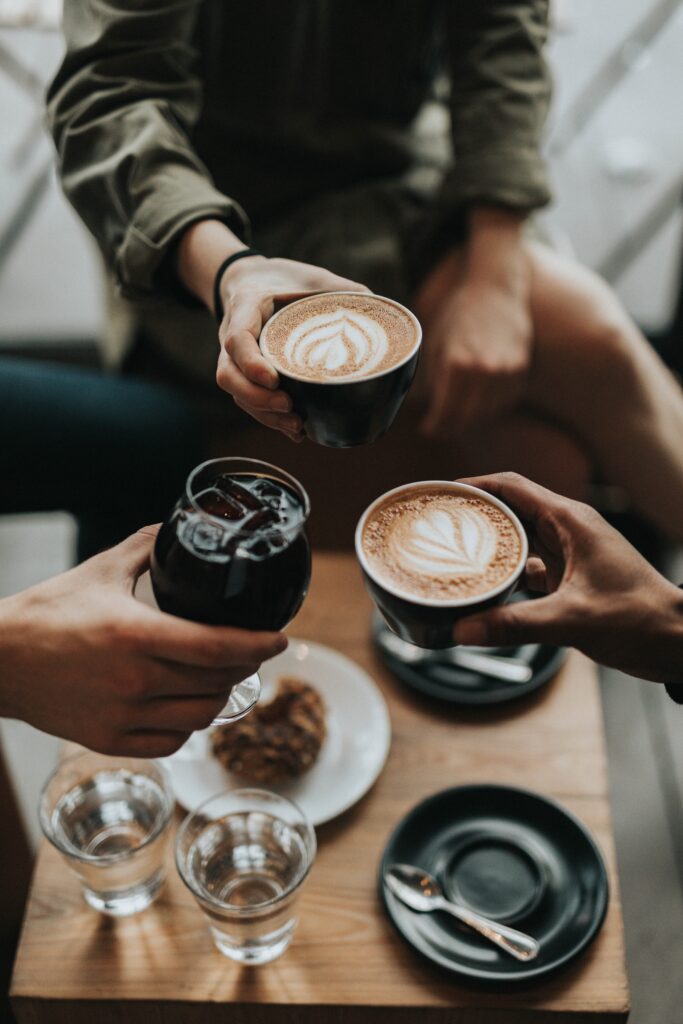SHARE TO:

For those of us who suffer from anxious thoughts, they can feel all-encompassing. They can make your best day your worst and small events in your life feel like world-shaking problems. Being anxious is a normal reaction to stress, but those with an anxiety disorder may experience excessive fear.
Anxiety disorders are one of the most common types of mental illness with up to 33.7% of the population expected to suffer from it at some point in their life (3). It may impact their relationships, work, home life, and parenting. The anxious feelings may also escalate to physical symptoms, including a racing heart, feeling on edge, shakiness, and sweating.
Caffeine, which is thought to be consumed by over 80% of Americans, may be associated with exacerbation of anxiety. Although caffeine can improve alertness, increase energy, and give an overall feeling of well-being for some (1), overconsumption can lead to trouble sleeping, jitters, and stomach irritability.
I know what you may be thinking. I am NOT giving up my coffee. It is the one thing that still brings me joy! I hear ya, I hear ya. All I am saying is that you may just want to be mindful of the amount of caffeine you consume on a daily basis. Especially on a day when you are already feeling anxious or if you haven’t consumed any food yet. Drinking caffeine on an empty stomach may irritate you more than if you had something to eat prior. It can also increase your Cortisol levels.
Keep in mind the serving size of that cup of coffee. Most mugs that we have at home are 12 fl oz and if you are getting it from a coffee shop it is likely much bigger than 8 to 12 fl oz. Based on the 2020–2025 Dietary Guidelines for Americans, the recommended daily maximum intake of caffeine is 400 mg per day, which is equivalent to 4-5 (8 fl oz) cups of regular coffee.
Current research has found that caffeine as low as 500mg per day may increase the risk of panic attacks in those who suffer from them however, the exact mechanism is still not clear (2). Be mindful and if you know you are sensitive to caffeine you may want to lay off of it on a day that you aren’t feeling your best. Not having caffeine after 2pm is also just a good habit to get into especially if you also have trouble sleeping.
Hoping you find that balance between energy and calm, clarity!
Xoxo,
Jackie
1) Lara DR. Caffeine, mental health, and psychiatric disorders. J Alzheimers Dis. 2010;20 Suppl 1:S239-48. doi: 10.3233/JAD-2010-1378. PMID: 20164571.
2)Klevebrant L, Frick A. Effects of caffeine on anxiety and panic attacks in patients with panic disorder: A systematic review and meta-analysis. Gen Hosp Psychiatry. 2022 Jan-Feb;74:22-31. doi: 10.1016/j.genhosppsych.2021.11.005. Epub 2021 Dec 2. PMID: 34871964.
3)Bandelow B, Michaelis S. Epidemiology of anxiety disorders in the 21st century. Dialogues Clin Neurosci. 2015 Sep;17(3):327-35. doi: 10.31887/DCNS.2015.17.3/bbandelow. PMID: 26487813; PMCID: PMC4610617.
Struggling with your mental health or overwhelm? Sign up below to get 10% off our whole food supplements designed thoughtfully for the overworked woman. You’ll receive a discount code in your inbox. You will also be the first to know about launches, new products, and updates! No spammy crap, I promise!
Copyright © 2022-2023 Her Resilience LLC. Nutritiously Ever After – All Rights Reserved. Designed by Chloe Creative. Terms. Privacy Policy.
These statements have not been evaluated by the Food and Drug Administration. These products are not intended to diagnose, treat, cure, or prevent any disease. All content found on our website and including text, images, audio, or other formats were created for informational purposes only. The content is not intended to be a substitute for professional medical advice, diagnosis, or treatment. Always seek the advice of your physician or otherwise qualified health provider with any questions you may have regarding a medical condition. Never disregard professional medical advice or delay in seeking it because of something you have read on this website.